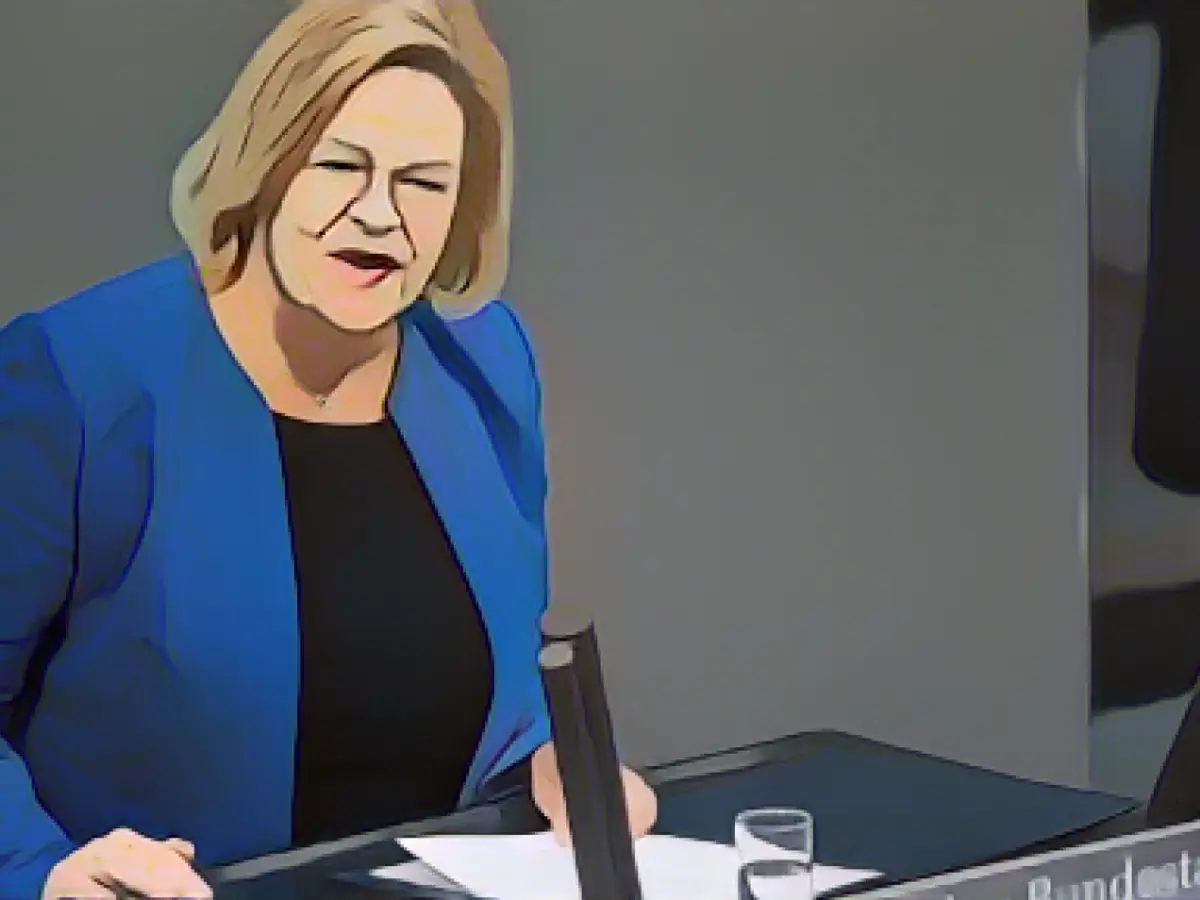In the vibrant metropolis of Berlin, where the boundary between reality and fiction blur, pressing issues such as the ongoing conflict in the Middle East, terrorism, and the unsettling rise of antisemitism are centerstage. These controversies will shape the Conference of Interior Ministers (IMK) this week, which will also tackle demonstrations led by Palestinian groups and freedom of assembly.
Nancy Faeser, the charismatic Federal Interior Minister, foreshadowed the conference's central theme, stating, "fighting the escalating threat of Islamist terrorism and the repulsive hatred towards Jews and Israel will be the backbone of this conference." The IMK pledges to send a resounding message: safeguarding Jewish lives is paramount for our state, a duty we endeavor to fulfill with unwavering vigilance and unyielding commitment to their security.
Simultaneously, Faeser recognized the worsening terrorist threat, stressing the necessity of immediate action to quell Islamist extremism and halt progressive radicalization processes.
The three-day conference in a renowned Berlin hotel tackles a myriad of problems beyond terrorism and antisemitism. Refugee numbers and border controls are also on the agenda, with advancements reported since the last gathering. The federal government has revised its financial contribution to refugee expenses, and additional border controls have been implemented.
A divisive topic likely to emerge is the potential harsher penalties for antisemitic offenses. The federal government is contemplating whether dual nationals could face citizenship revocation following a criminal conviction.
Furthermore, the IMK will investigate strategies to counteract the surge in violent crime, the proliferation of extreme sexualized content online, the reversal of the burden of proof in seizing criminals' assets, and security measures for the 2024 European Football Championship.
The Berlin Police Union (GdP) calls for increased focus on the capital's pressing challenges and operational challenges. In light of numerous worldwide events impacting the city's security scenario, the union underscores the need for a uniform national police and assembly law and significant reinforcements for the Berlin police force from neighboring regions.
As tensions mount and concerns vary, Baden-Württemberg's Interior Minister Thomas Strobl advocates for stiffer penalties for attacks on emergency services. He supports increasing the minimum sentence for such assaults from three to six months, acknowledging the gravity of such offenses against those safeguarding our communities.
Controversial and multifaceted issues will dominate the Conference of Interior Ministers in Berlin, with terrorism and antisemitism as its primary concerns. Other pressing matters, including refugee policies, border controls, and digital security, will also contribute to the deliberations.








